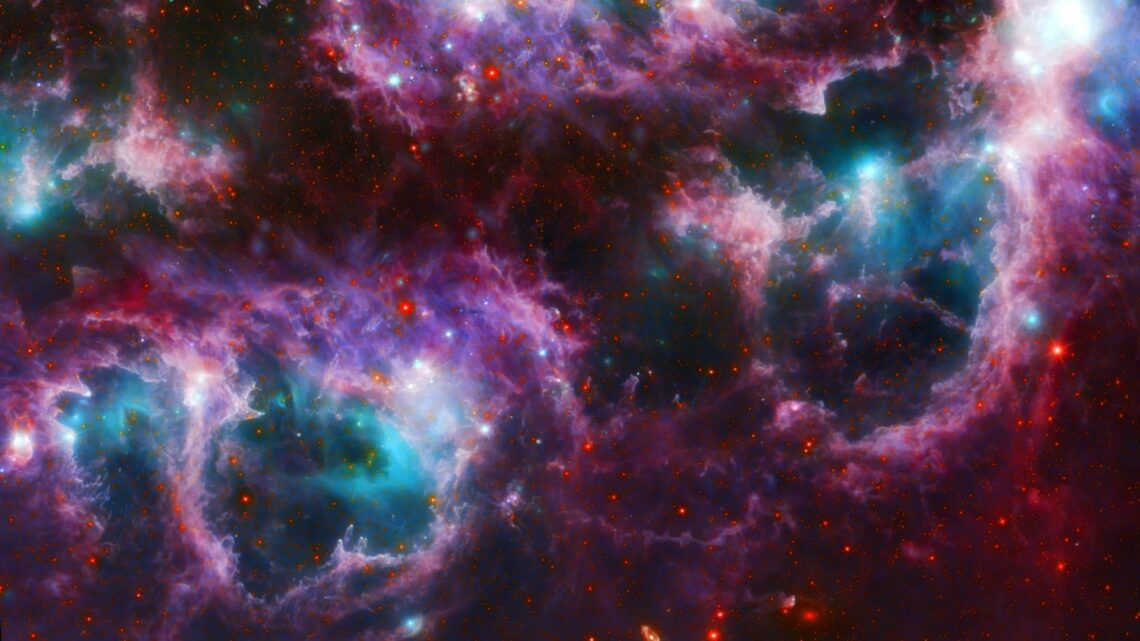In “The Seven Deadly Sins of AI Predictions” Rodney Brooks argues that we ought to push back against mistaken predictions about artificial intelligence. Optimism about A.I. has simultaneously led to utopian visions of a workless future and fears of an AI that might destroy us. His main point is that we ought to stop falling for AI hype. First, if we don’t know what something will be able to do, we will have a hard time knowing what it won’t be able to do: If something is magic, it is hard to know its limitations…This is a problem we all have with imagined future technology. If it is far enough…
-
-
CERN: “The Universe Should Not Exist”
Physicists puzzle over how the universe got going. The most plausible answer that does not rely on the existence of God is that the universe emerged from a ‘big bang’. However, it is not clear that the theory stands up to scrutiny. Apparently, the theory seems to entail that there would be no universe. The New York Post reports the following: Our existence is one giant, unexplainable head scratch. The universe shouldn’t technically exist, according to top scientists who have spent their careers trying to figure out how the beginning of everything didn’t immediately destroy itself. Apparently, the big bang theory of the origin of the universe entails that there is…
-
Is Creationism a Science?
I recently got into a debate over young earth creationism. One objection to the view went as follows: “A scientific theory is a concise set of statements which has broad explanatory and predictive power within its purview. In order to be considered scientific, a hypothesis must predict what must or must not be observed if it is true. If such things are not observed/observed, then the hypothesis is considered falsified. [Scientific Creationism] does not espouse any idea which makes exclusive predictions about what must or must not be observed. Every biological observation falls under “God made it that way” or borrows from evolutionary theory and says “it adapted that way.”…
-
Scrapping Over Crime: How Assumptions About Human Nature Explain Political Divisions
In clear-cut cases of crime, terror, and other instances of wicked human behavior, you’d think we’d all be on the same page. But we’re not. We argue over it, especially if we talk politics. It seems we can all call something bad, but when we talk about what we or the government should do about it, we can’t agree. Why not? The answer is fairly simple and comes down to our views of human nature. In other words, the argument is not primarily political but a question of worldview. Consider any event in which a person has done some immoral action. Now, consider why the action was taken. What is…
-
Earth Day: When Earth and Rationality Part Company
In honor of earth day, here are three fallacious earth day arguments: The first one suggests that scientific research strongly entails some particular government policy. It is used to suggest that any disagreement over government policy is directly related to one’s attitude toward science. Here is a formal version: If you accept science, then you accept policy P.You reject policy PTherefore, you reject science A good example of this sort of fallacy is provided by Bill Nye (a good source of silly fallacies, by the way). “All science is political” he said. And then he proceeded to bash the highly qualified scientist who disagreed with Nye’s position on the role…
-
AiG vs. BioLogos pt.2: Dr Jeanson (AiG)
There is a clock in DNA. Does it show how old the species is or not? We have less than 5% of DNA’s function. This is small fruit and does not conclusively tell us that ancestry is common or not. So, what do the number of DNA differences show? DNA resides in the nucleus and mitochondrial DNA resides in a separate part of the cell. The mitochondria is passed on through the maternal line (the sperm unites only with the nucleus). DNA has its own language comprising of four letters, ATCG. We can compare two DNA strands. When there is similarity and difference we can see it. DNA strands might…
-
AiG vs. BioLogos pt2: Dr Venema (BioLogos)
Dennis Venema I am sitting waiting for part 2. Some comments on what I’ve heard so far: So far the talks have not focused on Adam. Instead, we have heard arguments for the thesis that the similarities of traits across species do not show common ancestry and that they do. Neither argument is conclusive since both arguments conclude from that the data does not disconfirm the respective theories. Conclusions are thin. Design was a feature of Dr Jeanson’s talk – all the data is compatible with design. But this is true even if evolution is true. The data would not be radically different given either evolution or young earth. This…
-
AiG vs. BioLogos: Dr Venema (BioLogos)
Dr Venema from BioLogos is professor of Biology at Trinity Western University in BC, Canada. Dr Venema is a theistic evolutionist (or evolutionary creationist, as he calls it). Here are my notes: Three assumptions: If every square inch of creation is under the Lordship of Christ, then science is an act of worship. If God is the author of both books–the Bible and nature–then there cannot be a contradiction. If there is apparent conflict between our study of the Bible and nature, it is only apparent. A theory is an explanatory framework that has survived testing and makes accurate predictions. Evolution is this kind of theory. It makes accurate predictions,…
